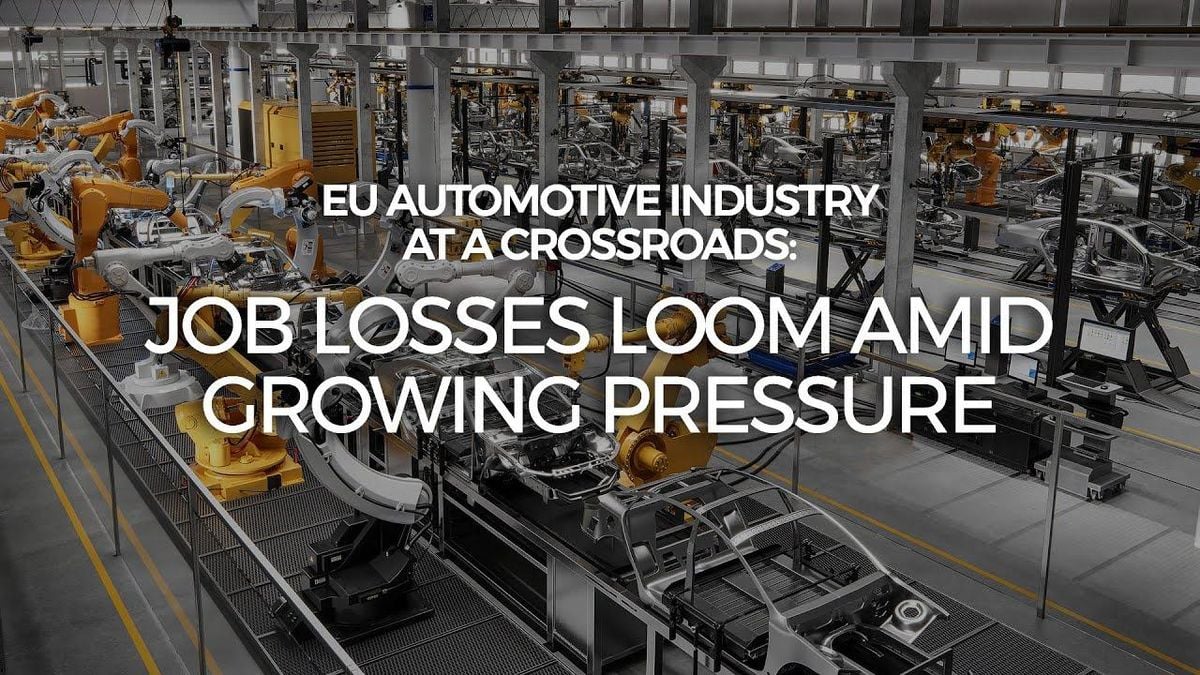European Auto Industry Faces Major Job Cuts

Across Europe, the automotive industry is facing turbulent waters, with various manufacturers announcing sweeping job cuts to cope with changing market demands and increased competition. The ripple effects of these cuts not only threaten thousands of jobs but also reflect the broader challenges the sector is grappling with amid economic pressures.
One of the significant players feeling the heat is Valeo, the French auto parts manufacturer, which is reportedly gearing up to cut approximately 1,000 jobs across its European operations. This move aligns with the company’s strategy to adapt to the shifting dynamics of the automotive industry, particularly as manufacturers grapple with the double whammy of rising costs and the transition to electric vehicles (EVs). Declining profits and increasing competition have forced Valeo to reassess its operational costs and workforce, showing just how challenging the current environment is for traditional automakers and their suppliers alike.
This news is just the tip of the iceberg. The automotive sector as a whole has seen major players like Ford and Stellantis also announcing substantial cuts to their European workforce. Ford recently revealed plans to reduce about 14% of its jobs across the continent, blaming the shift to electric vehicles and the subsequent impacts of rising competition. This transformation is markedly altering the fabric of the automotive workforce, creating uncertainty for many employees.
Stellantis, which operates major brands like Chrysler and Peugeot, is not immune to these pressures either. The company has closed facilities and paused production lines due to weak demand for certain models, such as the Fiat 500 electric vehicle. The economic environment merely compounds this challenge, as the post-COVID recovery has slowed down, leaving companies with excess capacity.
Meanwhile, the broader economic backdrop remains precarious. Inflationary pressures and rising raw material costs are adding to the burdens faced by European manufacturers. These economic stresses don’t just threaten jobs—they impact the overall viability of long-standing automotive firms as well. With competition from both established manufacturers and new entrants specializing in EVs mounted by players like Tesla, traditional automakers rapidly find themselves needing to innovate or risk becoming obsolete.
The European Commission has noted the urgent need for the industry to adapt to the changing environment. The EU aims to be climate-neutral by 2050, and to achieve this, it is investing heavily in green technologies and the development of EV infrastructure, which many believe is the future of the industry. Yet, this shift poses its challenges; the transition requires not just investment but also retraining workers to fill new roles created by the technological shift.
Overall, these job cuts signal more than just company-specific adjustments. They highlight the fundamental transformations occurring within the automotive sector, driven by technological advancements, economic pressures, and shifting consumer preferences. The once-stalwart automotive giants are now at crossroads, trying to navigate through challenging pathways filled with both risks and opportunities. Moving forward, maintaining and retraining the existing workforce will be pivotal for those companies wishing to succeed as they pivot toward sustainable and electric mobility.
Give Feedback. How was this article?
You can help us improve by leaving feedback specific to
this content.
How would you rate the quality of this article?
Which of the following feelings did this article evoke in
you?
Multiple Selection
How easy was it for you to find the information you were
looking for in this article?
Super Hard😱
😎Super Easy
Artificial intelligence is increasingly used in content
creation. What percentage of this article do you estimate was generated by AI?
How can we improve this article (or our articles in
general)?
Do you have any other suggestions for improving our content
or
website?
Thanks for the feedback
Thank you for supporting us to improve ourselves with your
feedback.
Related
ForexLive European FX news wrap: Euro stays buoyed, markets wait…
Headlines:Markets:EUR leads, AUD lags on the dayEuropean equities lower; S&P 500 futures up 0.1%US 10-year yields down 2.7 bps to 4.255%Gold up 0.4% to $2,9
European shares fall as tariff uncertainties weigh; US jobs data…
(Reuters) - European shares fell on Friday as frequent shifts in U.S. trade policy throughout the week resulted in risk aversion, while focus remained on th
US economy added 151,000 new jobs in February; Euro on…
US jobs report releasedNEWSFLASH: Hiring across the US economy picked up slightly at the start of Donald Trump’s second term in office.The US economy added 15












